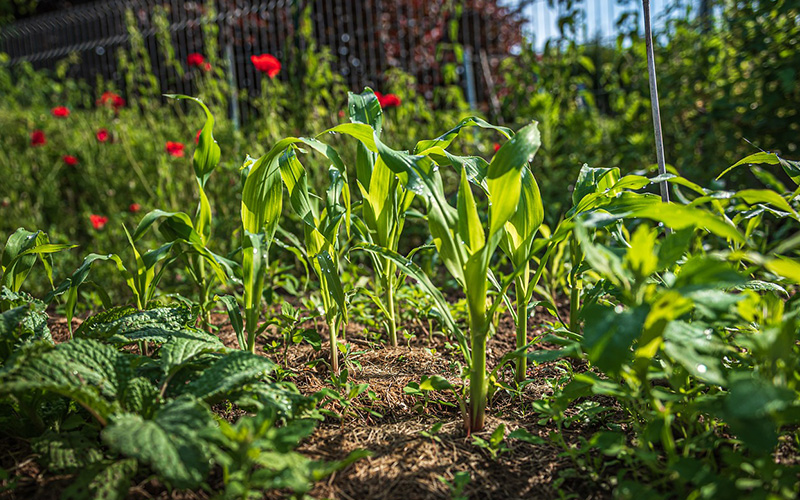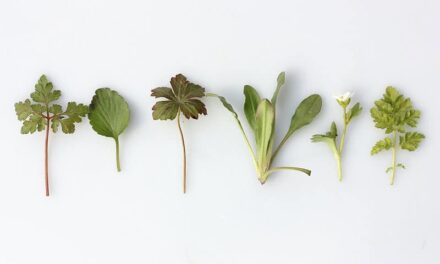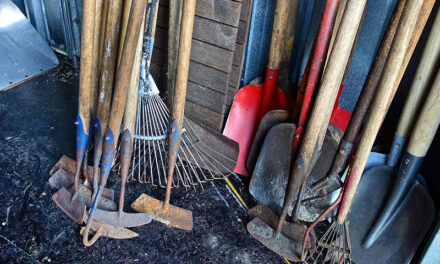Are you tired of spending a fortune on fresh fruits and vegetables from the grocery store? Well, starting a kitchen garden might just be the perfect solution for you. Not only does it allow you to eat fresh and nutritious food, but it also helps you save money in the long run.
Imagine stepping into your backyard and plucking a juicy tomato or a crisp lettuce leaf straight from the ground. With a kitchen garden, you have total control over the quality of the produce you consume. Say goodbye to the uncertainty of pesticides and preservatives that often come with store-bought produce.
Not only that, but a kitchen garden is also a great way to stay active and reduce stress. Gardening has been proven to have therapeutic effects on mental health, providing a sense of calm and accomplishment.
So why not start your own kitchen garden today? Whether you have a spacious backyard or a tiny balcony, you can grow your own fresh produce and enjoy the benefits of a healthier and more budget-friendly lifestyle.
The Benefits of Starting a Kitchen Garden
One of the primary benefits of starting a kitchen garden is the access to fresh and nutritious produce. Store-bought fruits and vegetables often lose their nutritional value over time due to transportation and storage. By growing your own food, you can harvest it at the peak of ripeness and consume it when it is most nutrient-dense.
Fresh produce is rich in vitamins, minerals, and antioxidants that are essential for maintaining good health. By incorporating a variety of fruits, vegetables, and herbs into your kitchen garden, you can ensure a well-balanced diet that supports your overall well-being.
Additionally, homegrown produce is free from harmful pesticides and preservatives that are commonly used in commercial farming. This reduces your exposure to potentially harmful chemicals, making your meals safer and healthier.
Cost Savings of Growing Your Own Food
Another significant benefit of having a kitchen garden is the potential for cost savings. The price of fresh produce can be quite high, especially when it is out of season or imported from distant locations. By growing your own fruits and vegetables, you can significantly reduce your grocery bill and save money in the long run.
Seeds and starter plants are generally inexpensive and can provide a bountiful harvest. With proper care and maintenance, a small kitchen garden can yield a substantial amount of fresh produce throughout the growing season. You will no longer need to rely solely on store-bought produce, which can be costly and of varying quality.
Additionally, by growing your own food, you can reduce food waste. You can harvest only what you need, minimizing the chances of fruits and vegetables going bad before they are consumed.
Environmental Benefits of Kitchen Gardens
Kitchen gardens have significant environmental benefits as well. When you grow your own food, you reduce your carbon footprint by eliminating the need for transportation and packaging. Store-bought produce often travels long distances, contributing to greenhouse gas emissions and pollution.
Furthermore, kitchen gardens promote biodiversity and encourage the growth of beneficial insects and pollinators. By avoiding the use of synthetic pesticides, you create a safe haven for bees, butterflies, and other important creatures that play a vital role in the ecosystem.
Additionally, growing your own food allows you to embrace sustainable gardening practices. You can compost kitchen scraps and use organic fertilizers to enrich the soil, reducing the need for chemical fertilizers that can harm the environment.
Planning Your Kitchen Garden
Before you start your kitchen garden, it’s essential to plan and prepare your space. Here are some key considerations:
Choosing the Right Plants for Your Kitchen Garden
The first step in planning your kitchen garden is selecting the right plants. Consider the climate and the amount of sunlight your garden receives. Some plants thrive in full sun, while others prefer partial shade. Research the specific growing requirements of different fruits, vegetables, and herbs to ensure they will thrive in your garden.
It’s also important to consider the available space. If you have limited space, opt for compact varieties or vertical gardening techniques. You can grow plants in containers, hanging baskets, or even on trellises to maximize space utilization.
Maintaining and Caring for Your Kitchen Garden
Once your kitchen garden is established, regular maintenance is crucial to ensure healthy plant growth. Here are some key tasks to keep in mind:
- Watering: Provide adequate water to your plants, ensuring the soil remains moist but not waterlogged. The frequency and amount of watering may vary depending on the plant’s needs and the weather conditions.
- Weeding: Regularly remove weeds to prevent them from competing with your plants for nutrients and sunlight. Mulching can help suppress weed growth and retain soil moisture.
- Pest Control: Monitor your garden for pests and take appropriate measures to control them. Consider using organic pest control methods to minimize the use of harmful chemicals.
- Pruning and Harvesting: Prune your plants as needed to promote healthy growth and remove dead or diseased parts. Regularly harvest ripe produce to encourage continuous production.
Harvesting and Enjoying Your Fresh Produce
The joy of kitchen gardening lies in harvesting and enjoying the fruits of your labor. The best time to harvest varies depending on the plant, so it’s important to research and understand the specific harvesting guidelines for each crop.
Harvesting at the right time ensures that your produce is at its peak flavor and texture. Enjoy the satisfaction of incorporating your homegrown fruits, vegetables, and herbs into delicious meals. Whether you’re making a fresh salad, a flavorful stir-fry, or a homemade salsa, the taste of your own garden-fresh produce will elevate your culinary creations.
Tips for Success in Kitchen Gardening
To make the most of your kitchen garden, here are some tips for success:
- Start small: If you’re new to gardening, it’s best to start with a small garden area or a few containers. This allows you to gain experience and gradually expand your garden as you become more confident.
- Know your soil: Understanding the composition and fertility of your soil is crucial for successful gardening. Conduct a soil test to determine its pH level and nutrient content. Based on the results, you can make informed decisions about soil amendments and fertilizers.
- Practice crop rotation: To prevent the buildup of pests and diseases, rotate the location of your plants each year. This helps maintain a healthy garden ecosystem and reduces the risk of plant-specific issues.
- Learn from others: Join gardening communities, attend workshops, or consult experienced gardeners to gain valuable insights and learn from their experiences. Gardening is a continuous learning process, and there is always something new to discover.
- Embrace experimentation: Don’t be afraid to try new plants, techniques, and gardening methods. Experimentation allows you to discover what works best in your specific garden conditions and adds excitement to your gardening journey.
Conclusion
Starting a kitchen garden is a rewarding endeavor that offers a multitude of benefits. From enjoying fresh and nutritious produce to saving money and contributing to a healthier environment, the advantages are endless. Regardless of the space you have available, you can embark on a journey of self-sufficiency and culinary delight by growing your own food. So why not take the first step and start your own kitchen garden today? Your taste buds, wallet, and the planet will thank you.










